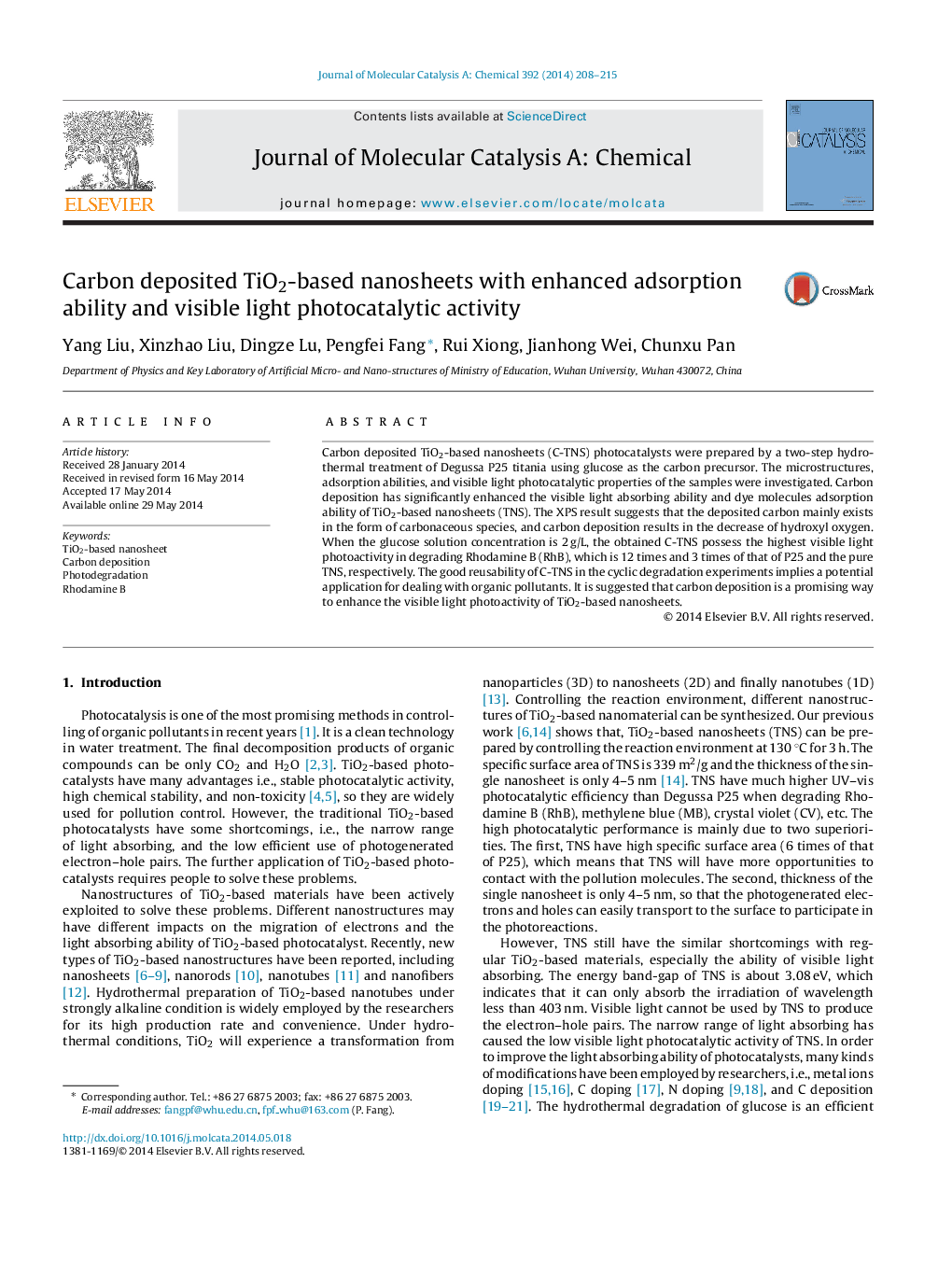| کد مقاله | کد نشریه | سال انتشار | مقاله انگلیسی | نسخه تمام متن |
|---|---|---|---|---|
| 65156 | 48384 | 2014 | 8 صفحه PDF | دانلود رایگان |

• C deposited TiO2-based nanosheets (TNS) are prepared by hydrothermal method.
• Adsorption ability of TNS increases greatly after C deposition.
• Visible light photoactivity of TNS is improved obviously by C deposition.
• C deposited TNS have a stable performance of recycling use.
Carbon deposited TiO2-based nanosheets (C-TNS) photocatalysts were prepared by a two-step hydrothermal treatment of Degussa P25 titania using glucose as the carbon precursor. The microstructures, adsorption abilities, and visible light photocatalytic properties of the samples were investigated. Carbon deposition has significantly enhanced the visible light absorbing ability and dye molecules adsorption ability of TiO2-based nanosheets (TNS). The XPS result suggests that the deposited carbon mainly exists in the form of carbonaceous species, and carbon deposition results in the decrease of hydroxyl oxygen. When the glucose solution concentration is 2 g/L, the obtained C-TNS possess the highest visible light photoactivity in degrading Rhodamine B (RhB), which is 12 times and 3 times of that of P25 and the pure TNS, respectively. The good reusability of C-TNS in the cyclic degradation experiments implies a potential application for dealing with organic pollutants. It is suggested that carbon deposition is a promising way to enhance the visible light photoactivity of TiO2-based nanosheets.
Figure optionsDownload high-quality image (254 K)Download as PowerPoint slide
Journal: Journal of Molecular Catalysis A: Chemical - Volume 392, October 2014, Pages 208–215